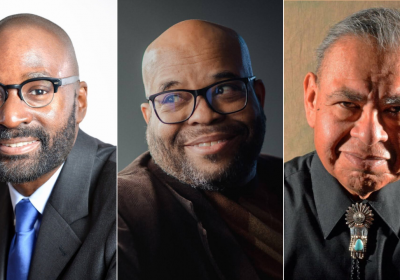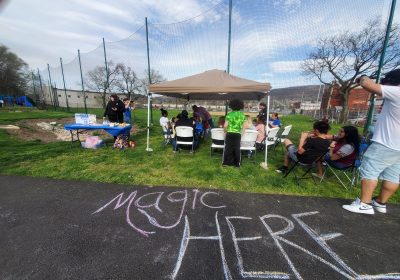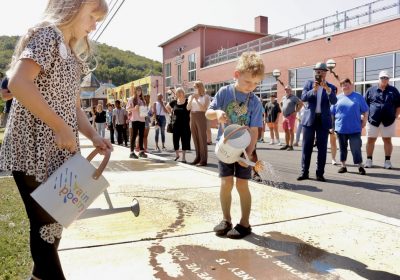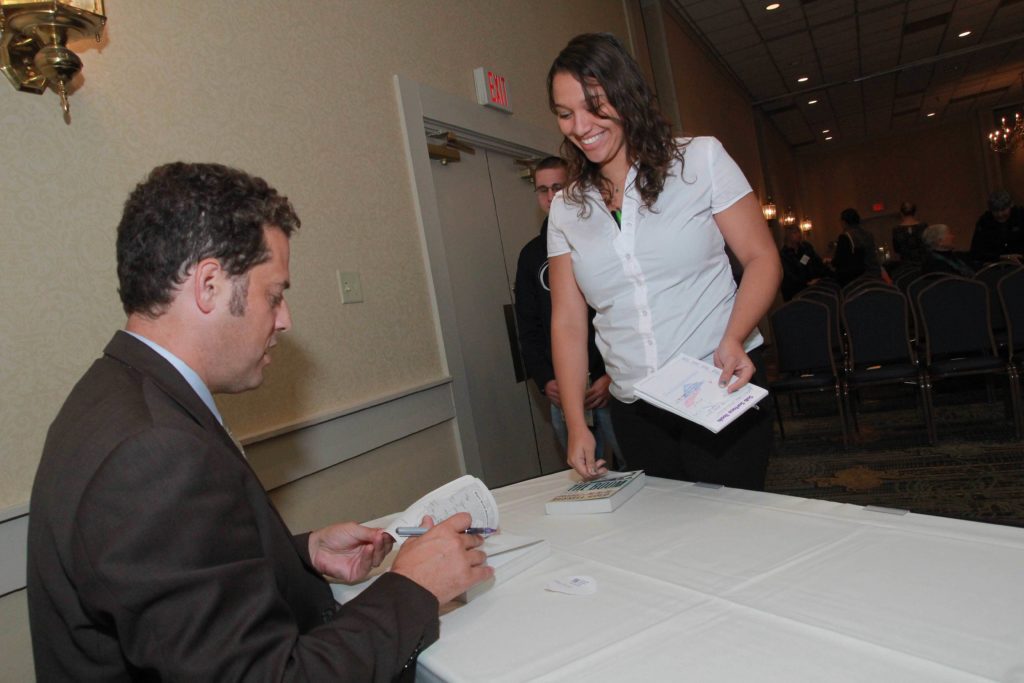
On October 13, 2015, Penn State Reads author Russell Gold discussed his book The Boom: How Fracking Ignited the American Energy Revolution and Changed the World with a live community audience in State College.
RUSSELL GOLD IN CONVERSATION WITH KATIE O’TOOLE
Gold gave brief opening remarks then engaged in lively discussion with Katie O’Toole, who is an instructor in Penn State’s College of Communications and a seasoned public broadcasting writer and producer.
Audience members submitted questions to fuel the conversation throughout the evening, and they had the opportunity to talk one-on-one with Gold during a book-signing session.
Gold was in State College for a series of events connected to the Penn State Reads program, which each year invites people across the university to read a single book. To bring the wider State College community into the conversation, the Pennsylvania Humanities Council produces an annual public event in partnership with the Penn State Reads Program, the Schlow Centre Region Library, and with Penn State’s Institute for the Arts and Humanities, Pennsylvania Center for the Book, and University Libraries.
Gold lent his perspective as a veteran energy reporter to every part of the community conversation.
“If we want to be serious about using fossil fuels
Russell Gold
and trying to find a way to do it in an environmentally
responsible manner, then we all have a stake in it.”
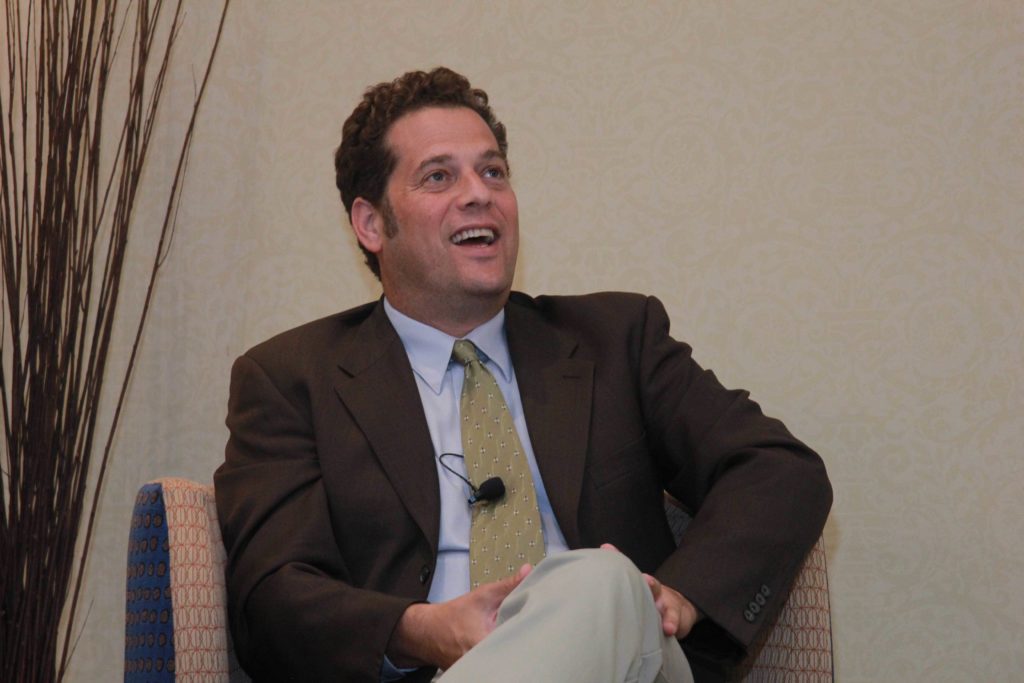
“You wouldn’t build a nuclear power plant — you wouldn’t build some sort of a smelter — lightly regulated,” he said in opening remarks. “But for some reason we feel that that’s OK to do with fracking.” He added, “If we want to be serious about using fossil fuels and trying to find a way to do it in an environmentally responsible manner, then we all have a stake in it. The companies have a stake in it, the neighbors, the community has a stake in it, and, yes, the governmental regulators have a stake in it.”
In The Boom Gold tells the stories of scientists, engineers, business people, environmentalists, and community members in great detail, weaving together a series of widely varied perspectives on the domestic drilling boom. He acknowledges early in the book that “common ground is elusive. The forces arrayed in favor and against don’t speak the same language.”
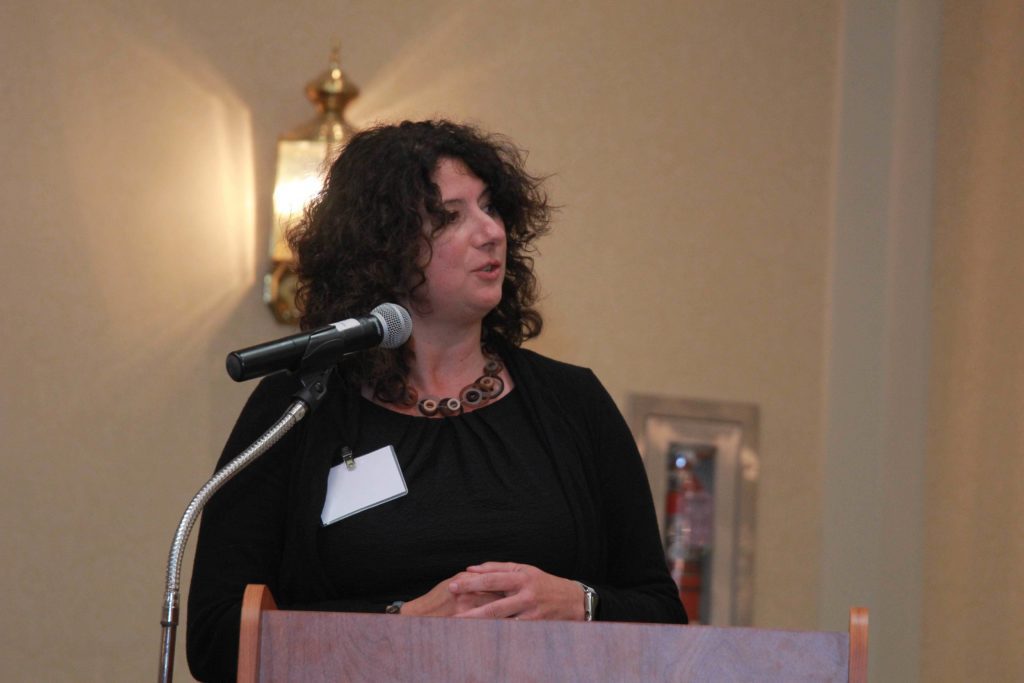
During the community conversation, Pennsylvania Humanities Council executive director Laurie Zierer pointed to the power of the humanities to help individuals and communities work together to solve complex problems. She noted that book people and passionate humanities advocates tend to be good at deliberation, at long and careful consideration and discussion.
“Books and ideas—and our discussion of them —are best when they lead us to collaborate with others in our communities to solve problems that may seem insurmountable,” Zierer said. “To paraphrase the philosopher Peter Levine, in his recent book We Are the Ones We Have Been Waiting For, people—all of us sitting here tonight—are our best renewable source of energy and power.”
Near the end of The Boom Gold writes, “It’s time to slow down… When it comes to fracking, getting it right is important. And if we blow it, we’re never going to forgive ourselves.”
It is our hope that, with the knowledge and wisdom from books like The Boom and humanities programs like the Penn State Reads community event, we can make strong decisions about issues like fracking and work together to make a difference in our communities.
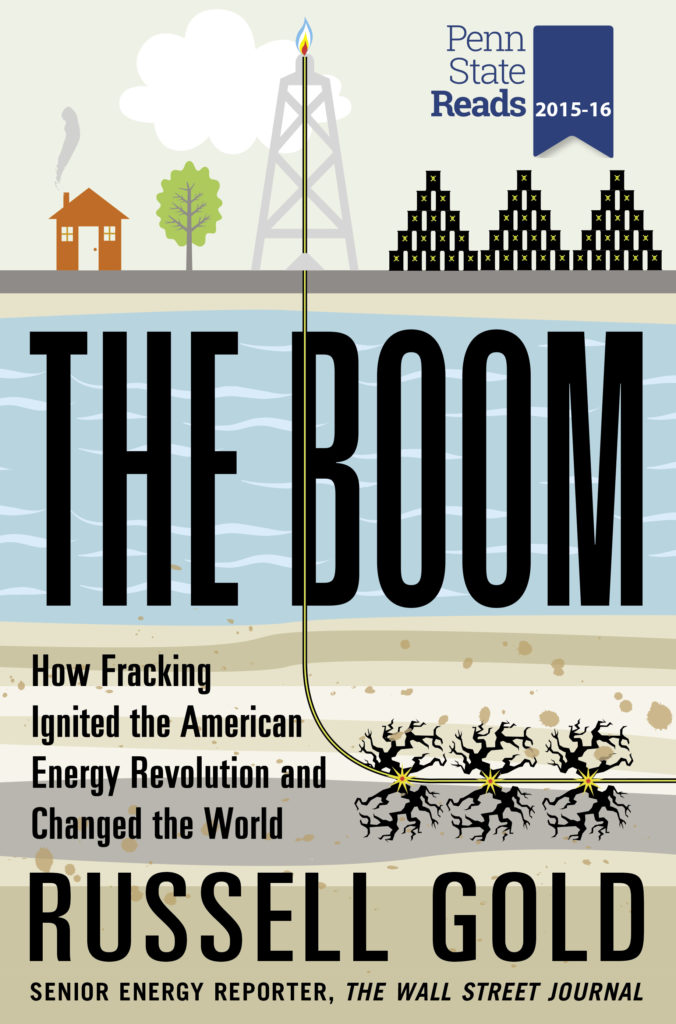
![[color – dark bg] PA SHARP FINAL FILES DB 72dpi [color - dark bg] PA SHARP FINAL FILES DB 72dpi](https://pahumanities.org/uploads/files/elementor/thumbs/color-dark-bg-PA-SHARP-FINAL-FILES-DB-72dpi-phgl7aimtfdpzt2rscvl43ksfv3asbbls19lsvuacw.jpg)
